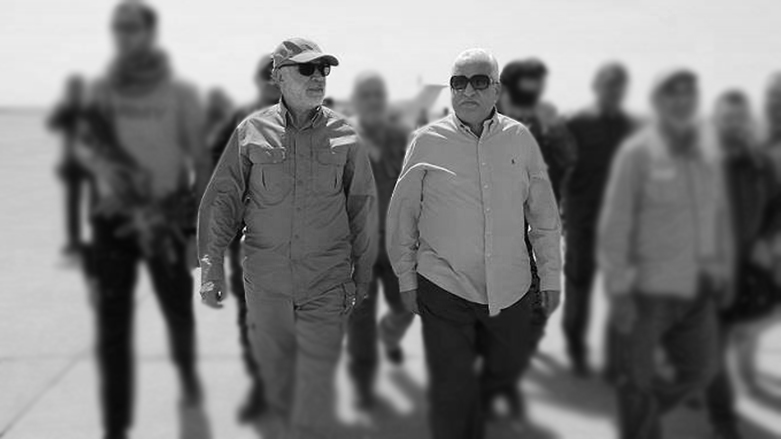Iran-backed militias slam Iraqi PM's sacking of security adviser, call the decision 'illegal'

ERBIL (Kurdistan 24) – The prime minister of Iraq’s caretaker government on Thursday sacked the country’s national security advisor, indicating a rift between two members of the coalition vying to form government and sparking warnings from a militia group that the state is misusing its powers.
The decision came “given the involvement of Mr. Falih Faisal Fahad al-Fayyadh in political and partisan work and his desire to address political affairs,” began a statement released by the media office of Prime Minister Haider al-Abadi.
Fayyadh is the head of the Ataa Movement political party which, with two seats won in the May 12 election, is part of the PM’s Victory Coalition that came in third place with 42 seats. Recent reports, however, suggest a schism in Abadi’s team, with Fayyadh—also the head of the Iranian-backed Hashd al-Shaabi, also known as the Popular Mobilization Forces (PMF), Committee.
The coalition with the most PMF support is the al-Fatih Coalition, which is headed by Hadi al-Amiri, a contender of Abadi’s eyeing to lead the next government. Recently, Fayyadh has reportedly expressed his preference for Amiri over Abadi and shown interest in joining Fatih.
Abadi’s decision to dismiss Fayyadh prompted an immediate response from the Fatih Coalition.
Firing Fayyad is “a serious sign and a new indicator that the outgoing prime minister is dealing with security services and other state bodies according to his personal interests.”
Fatih’s statement accused Abadi of sacking Fayyadh because the latter “no longer felt he was benefitting” from the incumbent PM staying in power.
“These decisions are illegal, according to the constitution, because Fayyadh has responsibilities akin to that of a minister, which is a political post, similar to that of the Ministry of Defense and the Interior,” read the statement.
“These actions are personal decisions that complicate the security situation and endanger the stability of the country and open the domestic front to terrorism,” added the statement, suggesting the move was the “maneuvering of a power-hungry leader.”
Abadi, in decree number 286, ordered to - effective immediately - relieve Fayyadh of his duties as “national security advisor, head of the Hashd al-Shaabi Committee, and the National Security Apparatus.”
The decree claimed Fayyadh’s involvement in politics “conflicts with the sensitive security tasks” he undertook, adding that “as per the Iraqi constitution, neutrality must be exercised by individuals within the security and intelligence services.” It also cited that the Hashd al-Shaabi’s regulations, instructions, and the state’s directives “prohibit the exploitation of sensitive security posts in partisan activities.”
Earlier, Abadi reversed the decision of Deputy Commander of the PMF, Abu Mahdi Muhandis, to withdraw a number of Hashd al-Shaabi forces from liberated and disputed Muslim Sunni populated areas.
Editing by Nadia Riva
(An earlier version of this report said that the Ataa Movement had three seats in the May 12 elections.)
